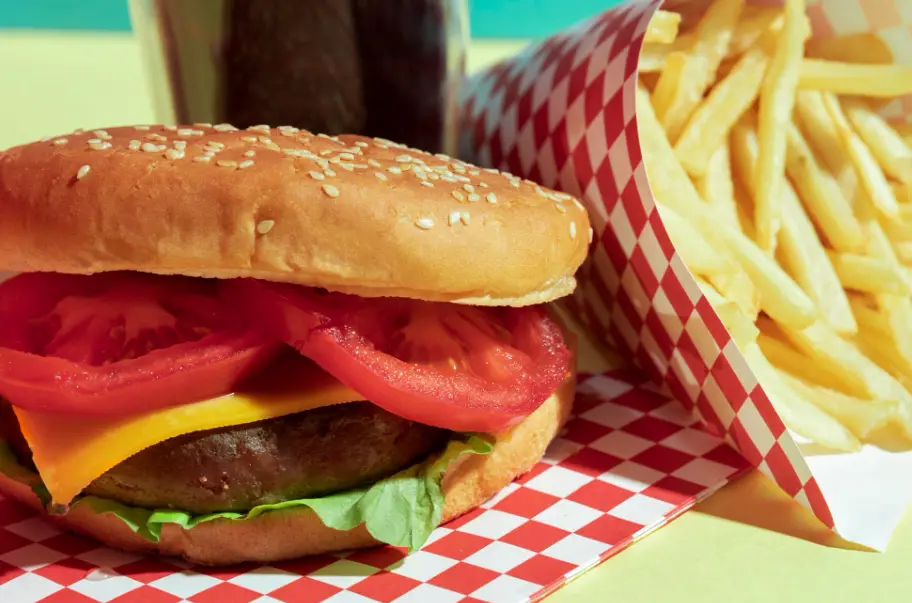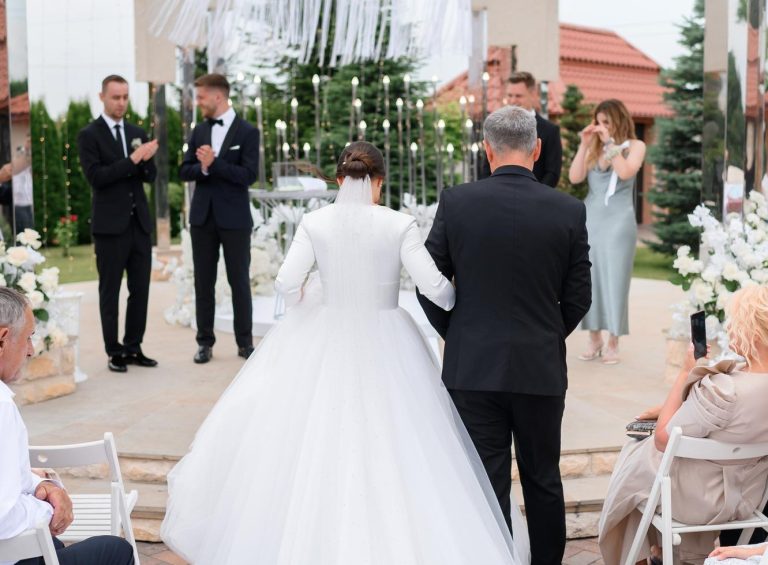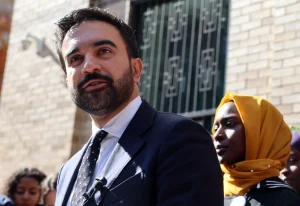A Mother’s One Hamburger and a Stranger’s Simple Act Reminded Me What Really Holds the World Together
I stopped by McDonald’s for a quick bite and witnessed something that changed my perspective on kindness forever. A mother and daughter sharing one hamburger taught me that the most profound moments often happen in the most ordinary places—and that everyday compassion might be the most important force in our world.
The Ordinary Tuesday That Became Extraordinary
I had ducked into McDonald’s for a quick lunch, nothing more than a brief stop in an otherwise routine day. The restaurant buzzed with its usual afternoon energy—workers grabbing late lunches, teenagers clustering around tables, the familiar sounds of orders being called and fries sizzling.
That’s when I noticed them at the table next to mine: a mother and her young daughter, perhaps six or seven years old. They caught my attention not because they were loud or disruptive, but because of their quiet presence that somehow stood apart from the surrounding bustle.
“Can we eat here, please?” the little girl had asked softly as they approached the counter.
I watched as they ordered—just one hamburger. One single item for two people. They chose a table near the window, and that’s when I witnessed something that would stay with me long after I left that restaurant.
The Thermos and the Dream
As they settled into their seats, the mother reached into her well-worn bag and pulled out a thermos. She carefully poured what appeared to be tea into the lid, creating a makeshift cup for her daughter. The little girl accepted it gratefully, her small hands wrapping around the warm container.
From my nearby table, I couldn’t help but overhear gentle fragments of their conversation. They had just come from a hospital appointment, and the mother had carefully budgeted just enough money for their bus fare home. The hamburger, I realized, wasn’t purchased because they weren’t hungry—it was because her daughter had always wanted to try McDonald’s “just once.”
The little girl unwrapped the hamburger with the reverence of someone opening a precious gift. She took small, careful bites, savoring every moment like it was a celebration. Each bite was deliberate, appreciated, made to last. There was no rushing, no taking for granted what sat before her.
Meanwhile, her mother watched with a quiet smile—proud and tired all at once. In her eyes, I saw the complex mixture of emotions that so many parents carry: the joy of being able to provide something special for their child, coupled with the weight of circumstances that made even this small gesture significant.
The Recognition of Dignity
As I sat there finishing my own meal, something tugged gently at my heart. It wasn’t pity—that would have diminished what I was witnessing. Instead, it was admiration. This mother was doing everything she could to give her daughter small joys, even when life was stretched thin. She had found a way to turn a modest hamburger into a magical experience, transforming an ordinary fast-food restaurant into a place of celebration.
The daughter’s wonder was genuine and infectious. She didn’t see their situation as lacking—she saw McDonald’s as an adventure, a dream fulfilled. Her mother had successfully created joy from very little, and that struck me as one of the most profound forms of love I had ever witnessed.
I thought about my own assumptions and habits. How often did I take meals like this for granted? When was the last time I had approached something as simple as a hamburger with such genuine appreciation and joy?
The Simple Act
I finished my meal but found myself reluctant to leave. Something about their presence had shifted my entire perspective on the day, on the restaurant, on the nature of gratitude and resilience.
Walking back to the counter, I ordered a Happy Meal. The teenage worker asked if it was for here or to go, and I simply said, “It’s for the table over there.”
I carried the brightly colored box to their table and set it down gently. “I hope you enjoy this,” I said quietly, then started to walk away before they could feel any pressure to respond or express gratitude they might feel they owed.
But moments later, the little girl’s soft voice called out: “Thank you! Mommy, look!”
I turned back to see her eyes wide with excitement, her small hands already reaching for the Happy Meal box. Her mother’s gaze met mine—surprised, grateful, and a little overwhelmed. “Bless you,” she whispered, her voice carrying the weight of someone who understood the true value of unexpected kindness.
The Ripple Effect of Small Gestures
I stepped outside into the afternoon sun with a warm, steady feeling in my chest. Walking to my car, I reflected on what had just occurred. I knew I hadn’t changed their lives in any dramatic way. I hadn’t solved their financial challenges or addressed whatever health concerns had brought them to the hospital.
But kindness doesn’t always need to be grand to matter. Sometimes it’s just a meal, a smile, a reminder that we see each other as human beings worthy of care and consideration.
What struck me most was how natural the interaction had felt. There was no fanfare, no social media post to craft, no recognition sought. It was simply one person recognizing another’s humanity and responding with a small gesture of care.
The mother hadn’t asked for help. She wasn’t displaying her circumstances for sympathy. She was simply loving her daughter the best way she knew how, with the resources she had available. My small contribution didn’t rescue them—it acknowledged them, honored their dignity, and added a tiny bit of brightness to their day.
The Wisdom of Everyday Heroes
In our culture, we often celebrate grand gestures and dramatic acts of heroism. We’re drawn to stories of people who donate millions, who save lives in spectacular fashion, who make headlines with their generosity. These stories are important and inspiring.
But that afternoon at McDonald’s reminded me that the world is actually held together by quieter heroes—parents who stretch limited resources to create joy for their children, strangers who notice each other’s struggles and respond with simple kindness, and children who find wonder in the smallest gifts.
The mother I observed wasn’t performing heroism for an audience. She was simply loving her child, making do with what she had, and finding ways to create special moments despite challenging circumstances. Her daughter, in turn, demonstrated the kind of genuine appreciation that many of us have lost in our abundance.
The True Nature of Abundance
Leaving McDonald’s that day, I thought about abundance and scarcity in new ways. The mother and daughter had very little in material terms, yet their interaction was rich with love, gratitude, and joy. They had transformed a single hamburger into a feast, a fast-food restaurant into a palace, an ordinary afternoon into a celebration.
Meanwhile, I had walked in taking my meal entirely for granted, barely noticing the privilege of being able to order whatever I wanted without considering the cost. Their presence reminded me that abundance isn’t always about having more—sometimes it’s about appreciating what we have more fully.
The little girl’s careful, savoring bites taught me something about mindfulness that no meditation app ever could. Her mother’s quiet pride showed me what real strength looks like. Their shared moment demonstrated that love often manifests not in what we can provide, but in how we frame and celebrate whatever provision is possible.
The Infrastructure of Compassion
In the days following that encounter, I found myself thinking differently about the small interactions that make up our daily lives. I began to notice the cashier who always greets customers warmly despite working long shifts, the neighbor who waves from her garden every morning, the bus driver who waits an extra moment for someone running to catch the bus.
These aren’t headline-making acts of heroism, but they form what I now think of as the infrastructure of compassion—the countless small kindnesses that create the foundation for a more humane world.
The Happy Meal I bought cost less than ten dollars, took thirty seconds to order, and required no real sacrifice on my part. Yet for that little girl, it represented something much larger: proof that strangers can be kind, that good things can happen unexpectedly, that the world contains people who care about others they don’t even know.
The Lesson in Ordinary Places
McDonald’s isn’t typically where we expect to find profound life lessons. It’s a place of convenience, efficiency, and familiar comfort food. But that’s exactly what made the experience so powerful—profound moments don’t wait for perfect settings or ideal circumstances.
The mother could have hidden their modest circumstances, chosen a less visible table, or hurried through their meal to avoid potential judgment. Instead, she allowed her daughter to fully experience her McDonald’s dream, creating space for joy despite their limitations.
The little girl could have been embarrassed by their single hamburger or envious of other families’ larger orders. Instead, she approached the experience with pure delight, teaching everyone around her about gratitude and wonder.
I could have minded my own business, focused on my phone, or assumed someone else would notice and respond. Instead, I allowed myself to be moved by what I witnessed and to act on that feeling in a small way.
The Continuing Story
That interaction at McDonald’s lasted perhaps fifteen minutes, but its impact has continued far beyond that afternoon. It changed how I see generosity—not as something requiring significant resources, but as something requiring attention and care. It changed how I understand abundance—not as accumulation, but as appreciation. It changed how I think about heroism—not as dramatic rescue, but as daily love.
I think about that mother and daughter often. I wonder about their story, their challenges, their joys. I hope the little girl’s McDonald’s experience lived up to her dreams. I hope the mother felt seen and appreciated for the love she demonstrates daily. I hope they both understood that their quiet dignity and genuine joy taught a stranger something important about what really matters.
Most of all, I hope we all continue to notice each other—in McDonald’s and grocery stores and bus stops and all the ordinary places where extraordinary humanity unfolds every day. Because the world is indeed held together not by grand gestures, but by the everyday compassion we choose to extend to one another, one small moment at a time.
The little girl’s careful bites of that hamburger taught me more about gratitude than any sermon ever could. Her mother’s quiet love showed me strength I hadn’t recognized before. Their shared moment reminded me that kindness doesn’t need to solve everything to matter—sometimes it just needs to acknowledge that we’re all in this together, doing our best with what we have, deserving of care and dignity regardless of our circumstances.
In a world that often feels divided and harsh, that afternoon at McDonald’s offered a different vision: one where strangers notice each other’s struggles and respond with gentleness, where children find wonder in simple gifts, and where love multiplies through small acts of recognition and care. That’s a world worth building, one hamburger and one moment of kindness at a time.
Have you ever witnessed a moment that changed your perspective on kindness? How do you think small acts of generosity impact both the giver and receiver? What role do everyday heroes play in creating a more compassionate world? Share your thoughts about the power of simple kindness and the moments that have moved you to action in the comments below.

Emily Johnson is a critically acclaimed essayist and novelist known for her thought-provoking works centered on feminism, women’s rights, and modern relationships. Born and raised in Portland, Oregon, Emily grew up with a deep love of books, often spending her afternoons at her local library. She went on to study literature and gender studies at UCLA, where she became deeply involved in activism and began publishing essays in campus journals. Her debut essay collection, Voices Unbound, struck a chord with readers nationwide for its fearless exploration of gender dynamics, identity, and the challenges faced by women in contemporary society. Emily later transitioned into fiction, writing novels that balance compelling storytelling with social commentary. Her protagonists are often strong, multidimensional women navigating love, ambition, and the struggles of everyday life, making her a favorite among readers who crave authentic, relatable narratives. Critics praise her ability to merge personal intimacy with universal themes. Off the page, Emily is an advocate for women in publishing, leading workshops that encourage young female writers to embrace their voices. She lives in Seattle with her partner and two rescue cats, where she continues to write, teach, and inspire a new generation of storytellers.








